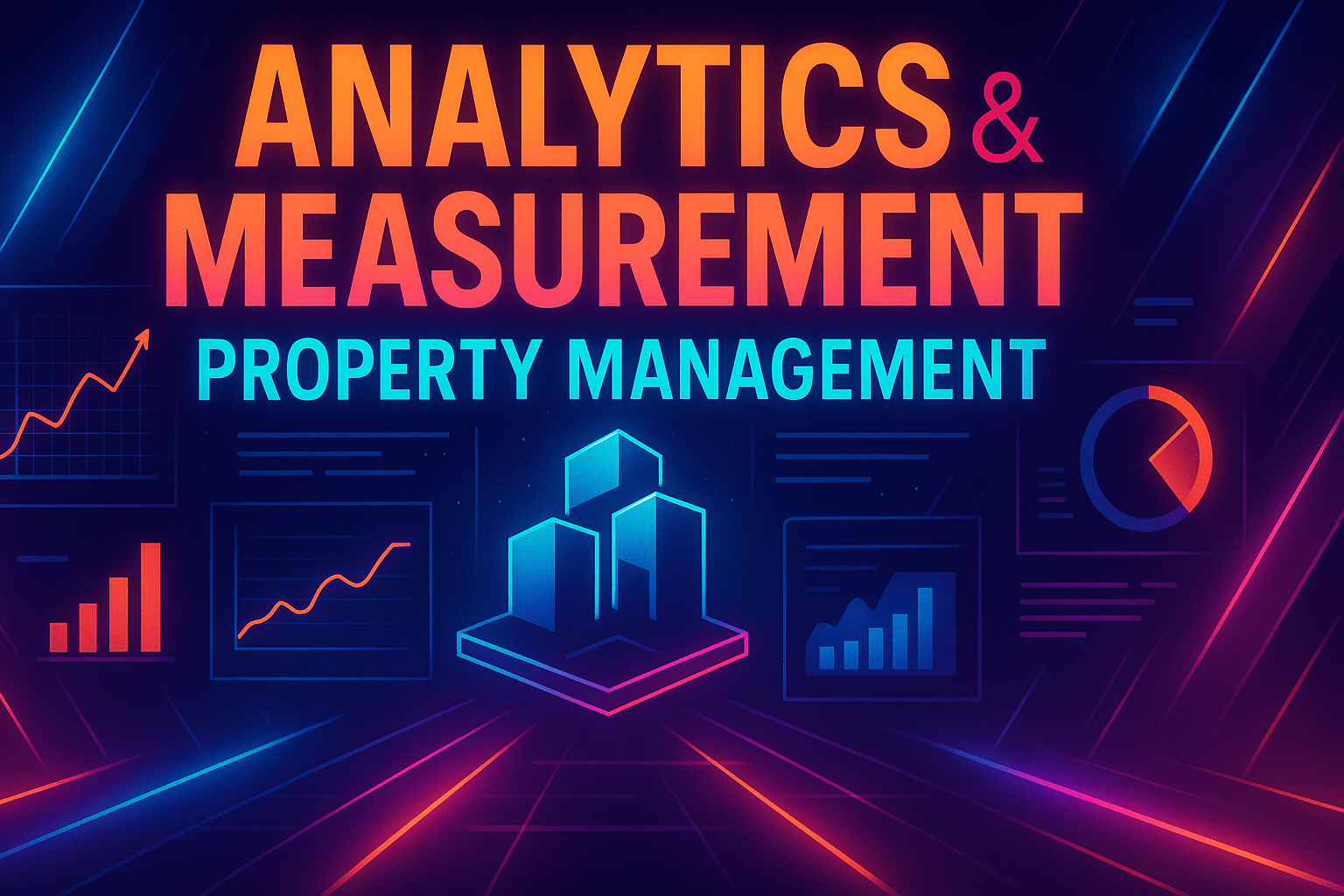Analytics & Measurement for Immigration Law: Track, Optimize & Scale Your Practice
by Design Delulu Editorial · October 3, 2025

Data-driven decision making transforms immigration law practices from guesswork to precision growth.
Why Analytics & Measurement Matter for Immigration Law Firms
Immigration law firms face unique challenges in a competitive, compliance-heavy market where client acquisition costs continue to rise and digital marketing channels multiply. Without proper analytics and measurement infrastructure, you're flying blind—unable to identify which marketing channels deliver qualified leads, which website pages convert visitors into consultations, or where potential clients drop off in your intake process. Every dollar spent on Google Ads, SEO, or content marketing becomes a gamble rather than an investment when you lack the data to measure performance, attribute revenue, and optimize campaigns based on actual client behavior.
The stakes are even higher for immigration law practices because your clients are often in urgent, stressful situations where trust and credibility determine whether they choose your firm. Analytics and measurement give you the power to understand exactly how prospects discover your services, what information they need at each stage of their journey, and which touchpoints drive them to schedule consultations. With proper tracking in place, you can double down on what works, eliminate wasted spend, and create a predictable, scalable client acquisition system that grows your practice while improving client experience. This isn't about vanity metrics—it's about building a measurement framework that directly connects to revenue, case volume, and long-term firm growth.

What Is Analytics & Measurement for Immigration Law?
Analytics and measurement for immigration law encompasses the strategic implementation of tracking systems, data collection infrastructure, and reporting frameworks specifically designed to measure marketing performance, website effectiveness, and client acquisition metrics for legal practices. This goes far beyond simply installing Google Analytics—it involves creating a comprehensive measurement plan that tracks every meaningful interaction across your digital ecosystem, from initial search query to signed retainer agreement.
For immigration law firms, this means implementing advanced tracking for consultation requests, document download events, phone calls from landing pages, live chat interactions, and multi-touch attribution that reveals which marketing channels deserve credit for client conversions. Modern analytics setups leverage server-side tracking for accuracy and privacy compliance, integrate with your case management system to close the revenue loop, and provide real-time dashboards that transform raw data into actionable insights your team can actually use to make better decisions.
Key Benefits of Professional Analytics & Measurement
- Advanced Event & Ecommerce Tracking: Implement GA4 with server-side tagging to capture every meaningful interaction—consultation requests, phone calls, document downloads, and form submissions—with precision that survives cookie restrictions and privacy regulations.
- Single Source of Truth Dashboards: Custom Looker Studio dashboards that consolidate data from Google Ads, Search Console, CRM, and analytics into one unified view, eliminating spreadsheet chaos and giving your team instant visibility into what's working.
- Revenue-Focused Attribution Modeling: Understand the full customer journey with attribution models tailored to immigration law's multi-touch sales cycle, so you know which channels drive qualified leads and which assist conversions.
- Data Governance & Quality: Establish naming conventions, tracking protocols, and quality assurance processes that ensure your data remains clean, consistent, and trustworthy for decision-making at scale.
- Performance Benchmarking: Track KPIs that matter—cost per lead, lead-to-consultation rate, consultation-to-client conversion, and lifetime value—with historical trending that reveals growth patterns and optimization opportunities.
- Privacy-Compliant Infrastructure: Server-side tracking and first-party data strategies that maintain measurement accuracy while respecting user privacy and meeting evolving regulatory requirements.
How Our Analytics & Measurement Process Works
- Discovery & Goals Alignment: We begin with deep discovery sessions to understand your firm's business model, client acquisition funnel, current marketing stack, and revenue goals. We identify key conversion events, map your customer journey, document existing tracking gaps, and establish success metrics that align with partner-level priorities. This phase includes stakeholder interviews, technical audit of current analytics implementation, and competitive analysis of tracking strategies in the immigration law space.
- Measurement Blueprint & Strategy: Based on discovery insights, we design a comprehensive measurement plan that outlines every event to track, data layer architecture, dashboard requirements, and integration specifications. This blueprint includes detailed tracking specifications, naming conventions, attribution model design, and a prioritized implementation roadmap. We also map out governance protocols to ensure data quality remains high as your team scales and marketing efforts expand.
- Build, Implement & Launch: Our team implements the complete tracking infrastructure—configuring GA4 properties, setting up server-side Google Tag Manager, building custom event tracking for immigration-specific interactions, integrating with your CRM and advertising platforms, and creating automated dashboards that update in real-time. Every implementation undergoes rigorous QA testing across devices, browsers, and user scenarios to ensure accuracy. We also provide training documentation and team onboarding to ensure your staff understands how to access and interpret the data.
- Monitor, Optimize & Scale: Analytics is not a set-it-and-forget-it deliverable. We establish ongoing monitoring protocols, set up automated alerts for anomalies, and provide regular optimization recommendations based on emerging patterns in your data. Through weekly performance reviews and quarterly strategic assessments, we help you iterate on campaigns, reallocate budget to high-performing channels, and continuously refine your measurement framework as your firm grows and marketing evolves.

What You'll Receive: Comprehensive Deliverables
Strategic Documentation
- Detailed Tracking Plan: Comprehensive documentation of every event, parameter, and trigger with specifications for implementation, including business rules, data layer requirements, and testing criteria.
- Measurement Framework Guide: Strategic document outlining your attribution model, conversion definitions, KPI hierarchy, and how different metrics connect to business outcomes.
- Data Governance Playbook: Standards and protocols for naming conventions, user access management, quality assurance procedures, and ongoing maintenance requirements.
Technical Implementation
- GA4 Configuration: Complete Google Analytics 4 property setup with custom event tracking, enhanced measurement configuration, audience building, and conversion tracking aligned to your intake funnel.
- Server-Side Tracking: Google Tag Manager server container deployed on secure infrastructure, providing first-party data collection that improves accuracy and respects privacy regulations.
- Cross-Platform Integration: Seamless connections between GA4, Google Ads, Search Console, CRM systems, and call tracking platforms to ensure unified data flow.
- Custom Event Tracking: JavaScript and tag configurations for immigration law-specific actions—consultation form submissions, visa eligibility calculator interactions, document checklist downloads, and phone call tracking.
Reporting & Insights
- Executive Dashboard: High-level Looker Studio dashboard showing leads, cost per acquisition, channel performance, and revenue metrics in real-time.
- Marketing Performance Dashboard: Detailed reporting on campaign effectiveness, landing page conversions, keyword performance, and budget allocation insights.
- User Behavior Analytics: Session recording integration and behavior flow analysis that reveals how prospects navigate your site and where they encounter friction.
- Attribution Reports: Multi-touch attribution views showing first-click, last-click, and data-driven models to understand the full customer journey.
Ongoing Support
- Training & Onboarding: Team training sessions on dashboard navigation, report interpretation, and how to extract actionable insights from your analytics.
- Optimization Recommendations: Monthly analysis of trends, anomalies, and opportunities with specific action items to improve performance.
- Technical Support: Ongoing assistance with tracking troubleshooting, new event implementation, and dashboard customization as your needs evolve.
Best Practices for Immigration Law Analytics Success
Focus on High-Impact Areas First
Not all pages and interactions deserve equal measurement attention. Prioritize tracking for your highest-traffic landing pages, primary conversion paths, and most expensive marketing channels first. For immigration law firms, this typically means consultation request forms, visa service pages, attorney bio pages, and blog content that ranks for high-intent keywords. Get the foundation right before expanding to edge cases.
Connect Creative to Measurement
Every marketing asset should have a clear, measurable objective. When launching new landing pages, ad campaigns, or content offers, establish KPIs upfront and ensure proper tracking is in place before going live. This discipline transforms creative from subjective opinion into testable hypotheses where data reveals what messaging, design, and positioning actually drives results.
Build Scalable Systems & Templates
As your firm grows and marketing becomes more sophisticated, manual tracking and one-off configurations create technical debt that slows you down. Invest in reusable templates for landing pages with pre-built tracking, standardized naming conventions for campaigns, and automated reporting that scales without requiring constant manual updates. Systems thinking now prevents chaos later.
Close the Loop with Regular Reviews
Analytics only creates value when insights drive action. Establish weekly dashboard reviews with your marketing team to spot trends early, monthly deep-dives to analyze campaign effectiveness, and quarterly strategic sessions to reassess goals and reallocate resources. Make data review a non-negotiable discipline, not an occasional afterthought when something seems wrong.
Maintain Data Hygiene
Bad data leads to bad decisions. Implement filters to exclude internal traffic, regularly audit for tracking errors, validate conversion data against CRM records, and immediately fix broken implementations. Schedule quarterly audits of your entire tracking infrastructure to catch drift before it corrupts your historical data and undermines trust in reporting.

Industry-Specific Strategies for Immigration Law Firms
Map Search Intent to Buyer Journey Stages
Immigration law prospects search differently at each stage of their journey. Early-stage searches like "how long does green card process take" indicate research mode, while "immigration lawyer near me" signals ready-to-hire intent. Tag your content and track conversions by journey stage so you can measure how effectively you move prospects from awareness to consideration to decision, and optimize content strategy accordingly.
Leverage Social Proof Early in the Funnel
Trust is the primary barrier to conversion in immigration law. Track how visitors interact with testimonials, case results, attorney credentials, and review widgets. Use event tracking to measure which social proof elements drive deeper engagement and consultation requests. This data reveals what credibility signals resonate most with your target audience so you can amplify them across touchpoints.
Establish a Single Source of Truth
Immigration law marketing often involves multiple stakeholders—partners, marketing managers, intake staff, and external agencies. Without a unified dashboard, everyone works from different numbers and conflicting priorities emerge. Create one authoritative reporting view that everyone references for performance discussions, eliminating data silos and creating alignment around shared metrics.
Ship Small, Test Fast, Compound Wins
Rather than massive quarterly campaigns, embrace rapid iteration. Launch focused tests—new ad copy variants, landing page layouts, consultation form fields—with clear measurement criteria. Let data reveal winners quickly, scale what works, and kill what doesn't. Small, frequent wins compound into dramatic performance improvement over time, while big bets without testing create expensive failures.
Track the Full Revenue Cycle
Don't stop measurement at lead generation. Integrate your analytics with case management systems to track lead-to-consultation conversion rates, consultation-to-signed-client rates, and average case value by marketing source. This closed-loop attribution reveals true ROI and helps you optimize for client quality, not just lead volume.
Frequently Asked Questions
Let’s level up your Immigration Law business
Need services that actually move the needle for Immigration Law? See our approach, pricing, and timelines—then book a quick call.
Additional Resources
- Book a Strategy Call
Schedule a free 30-minute consultation to discuss your firm's analytics needs, current tracking challenges, and how we can build a measurement infrastructure that drives growth.
- View Our Portfolio
Explore case studies and examples of analytics implementations, dashboard designs, and measurement frameworks we've built for immigration law firms and other legal practices.
- Free Marketing Tools
Access our library of free resources including analytics audit checklists, tracking plan templates, dashboard examples, and KPI calculators designed specifically for law firms.
Related Reading

Transform property management with advanced analytics. GA4 setup, attribution modeling, dashboards & tracking plans. 4-8 week implementation. See pricing & deliverables.

Implement powerful analytics & measurement systems for e-learning & creators. Track student engagement, course performance, and revenue metrics with GA4, dashboards, and attribution modeling.
